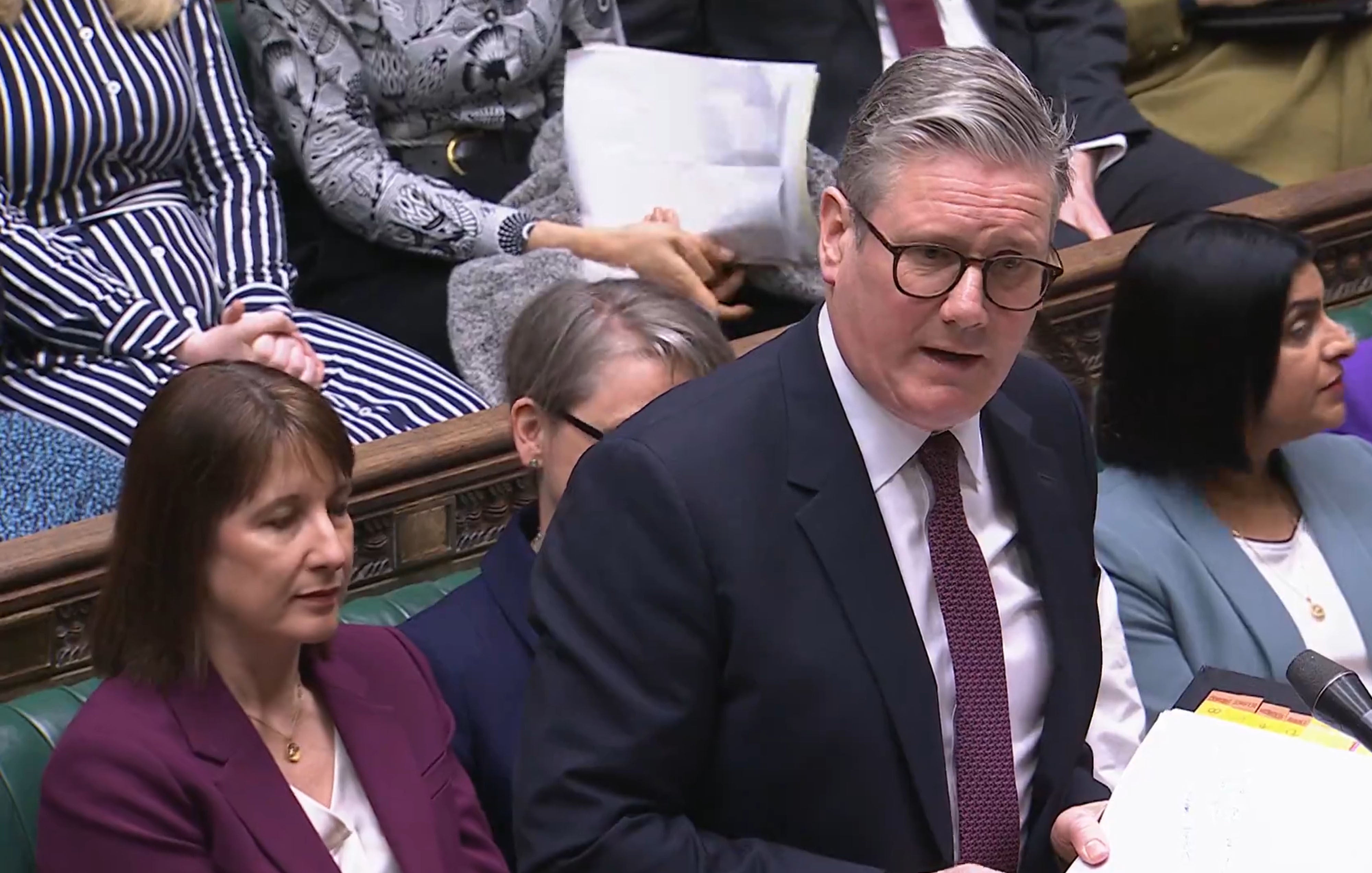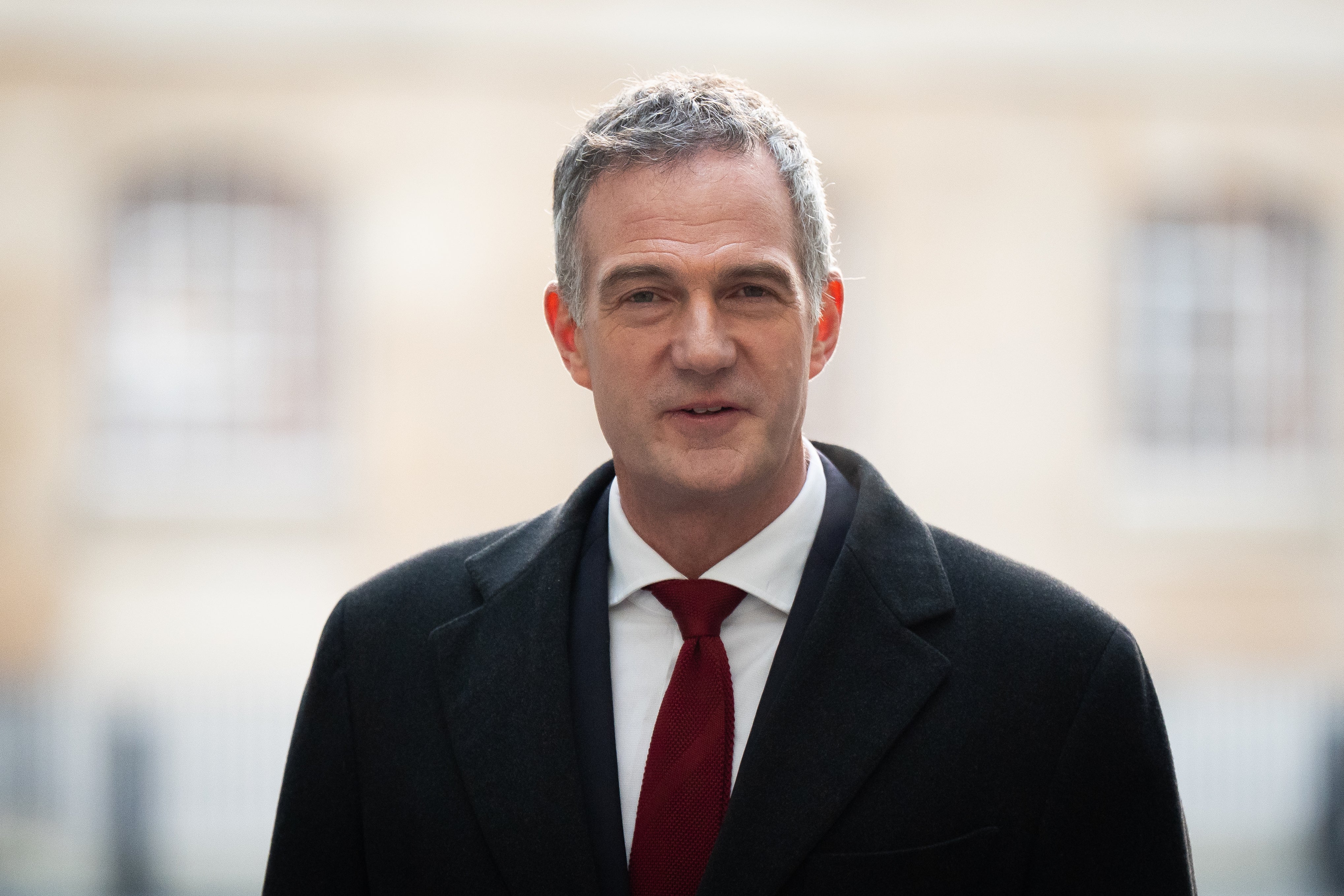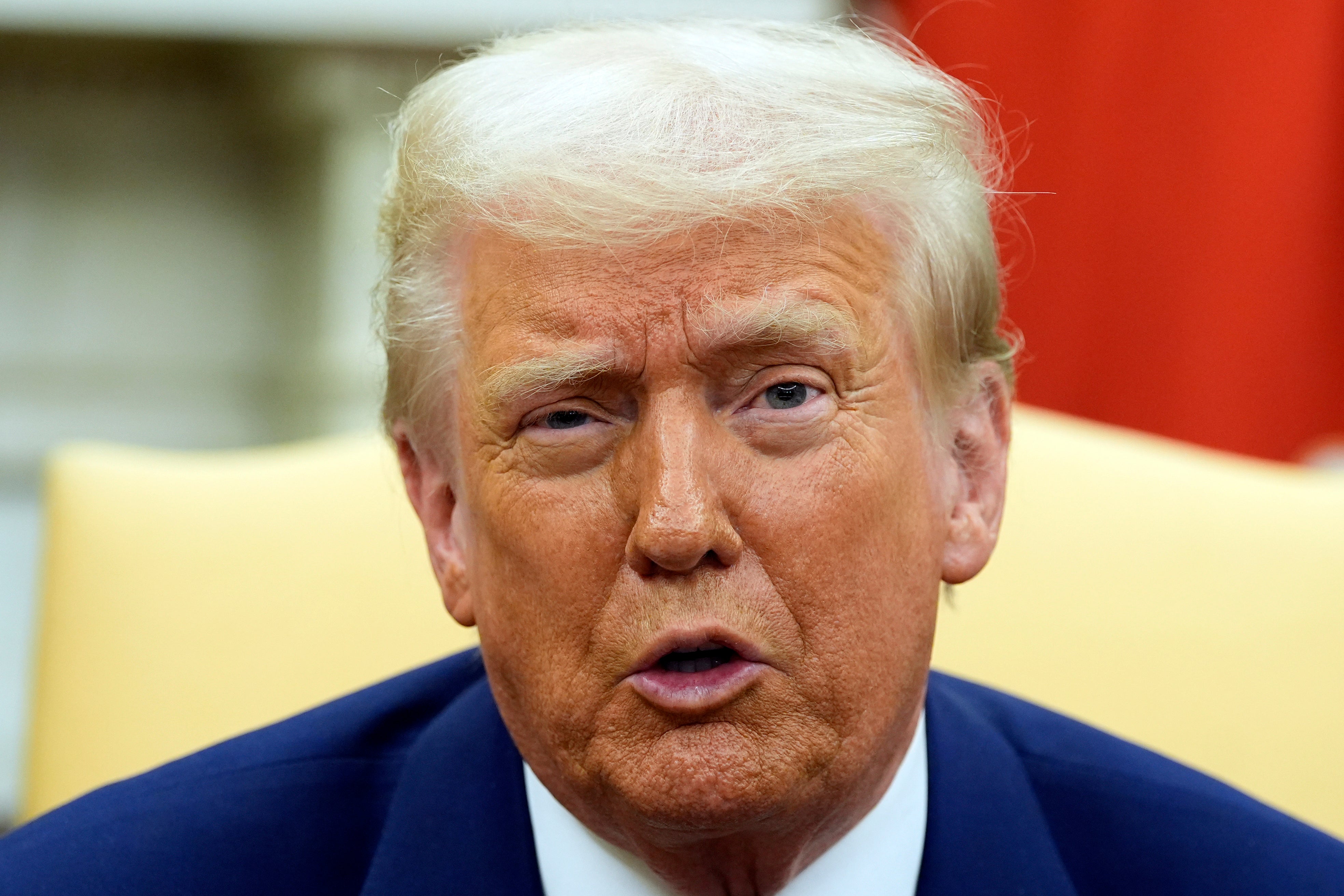Sir Keir Starmer is on a collision course with Donald Trump over the future of Ukraine and the president’s latest threat to impose tariffs on the UK, as the two leaders face their first major test since the Republican took office.
The US president announced on Thursday that he would impose “reciprocal tariffs” on all other countries, charging the same amount as levies imposed on American exports – claiming such a move was “fair to all”.
The policy published by the White House included VAT as a target – which analysts have suggested could knock around £24bn off UK GDP over the next two years.
It comes amid growing concern over how Mr Trump’s agenda could impact the global defence landscape, after he held shock talks with Russia’s Vladimir Putin and the US suggested Ukraine may be forced to give up some of its territory.

His defence secretary Pete Hegseth indicated that Nato membership is not a realistic prospect for Ukraine, despite the alliance’s official position being that Kyiv is on an irreversible path to joining the alliance.
The UK issued a robust response, saying “there can be no negotiation about Ukraine without Ukraine” – paving the way for the two countries to clash over the issue if Volodymyr Zelensky is excluded from the negotiating table.
And in the first talks between Sir Keir and the Ukrainian president since Mr Trump’s intervention, the prime minister broke ranks with the US, reiterating Britain’s commitment to Ukraine’s path into the alliance.
“The prime minister reiterated the UK’s commitment to Ukraine being on an irreversible path to Nato, as agreed by allies at the Washington Summit last year,” a readout of the call said, in a pointed message to the US.
The subject of global defence will be top of the agenda over the weekend as a number of senior cabinet ministers travelled to Germany for the Munich Security Conference, where European allies are expected to thrash out a response to the president’s change in stance.
In what appears to be an attempt to ease tensions between the two administrations, Sir Keir and Mr Trump spoke over the phone on Thursday evening, discussing the prime minister’s “forthcoming visit to the US”, Downing Street said.
But Mr Trump’s vice-president JD Vance inflamed tensions further with his address to the security conference, lashing out at governments across Europe over migration and free speech.
The speech, which sparked backlash from the Liberal Democrats and the Greens in the UK, saw Mr Vance back Brexit voters and claim that freedom is in danger across the continent.
“What I worry about is the threat from within, the retreat of Europe from some of its most fundamental values, values shared with the United States of America,” he said.
Meanwhile, there are growing fears of a global trade war following Mr Trump’s latest tariff announcement, with minister Peter Kyle warning that Britain will “respond accordingly”.

Asked if Britain should be worried about the threat, the technology secretary told Sky News: “The first thing to reassure people is that we need a government with cool, clear thinking at times like this, and this is what you have with this government.
“We will assess any changes and challenges that come down the line from any part of the global economy, and we will act appropriately in the best interest of Britain.”
Pressed on whether the government would respond with retaliatory measures to Mr Trump, the minister said: “What I said is that we will have a cool, clear look at what’s in the national interest, and we will respond accordingly, based on what we actually have in fact.”
It came after senior minister Pat McFadden said the government would not overreact but “wait and see” whether the tariffs “actually come to pass”.
The policy published by the White House on Thursday is a wide-ranging one, threatening retaliation not just for tariffs but for other non-tariff barriers and “unfair or harmful acts, policies or practices”.
It explicitly mentions “value added tax” as an “unfair, discriminatory or extraterritorial tax”, despite VAT being levied irrespective of whether a product has been imported or not.
George Saravelos, the global co-head of FX Research at Deutsche Bank, told The Telegraph that the UK would face extra charges of 21 per cent if the US imposed duties based on tariff policy and VAT combined.
According to the National Institute of Economic and Social Research (NIESR), tariffs of this scale would knock 0.4 per cent off economic growth over the next two years, amounting to around £24bn.
Mr Trump has announced a series of tariffs in the first weeks of his presidency, including earlier this week imposing a 25 per cent levy on steel imports.
But while his approach to international trade has frayed relations with some of the US’s closest allies, particularly Canada, his announcements have not always proved permanent.
Having announced tariffs on Canada and Mexico, he later suspended them for 30 days following negotiations.

Thursday’s tariffs will not come into effect immediately, with Mr Trump ordering his advisers to carry out investigations into other countries’ trade practices before suggesting what measures to impose.
Following the announcement, the British Chambers of Commerce (BCC) warned that Mr Trump’s plans would “upend established trade norms” and cause “more cost and uncertainty for investors, businesses and consumers across the world”.
But the BCC’s head of trade policy, William Bain, urged the government not to “get sucked into a trade war of tit-for-tat tariffs, which could easily spiral out of control”.







